Six Columbia Engineering Professors Win NSF CAREER Awards
Six Columbia Engineering professors have won the National Science Foundation’s prestigious Faculty Early Career Development (CAREER) awards this year. Their work, spanning a wide range of disciplines, carries extraordinary transformative potential: Michael Burke is creating predictive tools for minimizing the formation of harmful nitrogen oxides; Sharon Di is applying optimization, game theory, and data analytics to the field of autonomous vehicles and shared mobility transportation; Adam Elmachtoub is developing tools for translating consumer flexibility into operational efficiency in e-commerce and service systems; Xioafan (Fred) Jiang is working to optimize energy use in buildings; Dion Khodagholy is developing high-performance, flexible, biocompatible transistors; and Nandan Nerurkar is uncovering the mechanics behind embryonic development and how they relate to genetic defects. Their grants, each totaling $500,000 over five years, are among the most competitive given by the NSF.
“We congratulate our faculty on this well-deserved recognition,” says Mary Boyce, Dean of Columbia Engineering. “From tackling key problems in treating brain disease and building functional tissues to making the built environment and transportation more sustainable and e-commerce more efficient, they are advancing solutions that will have a direct impact on our daily lives.”
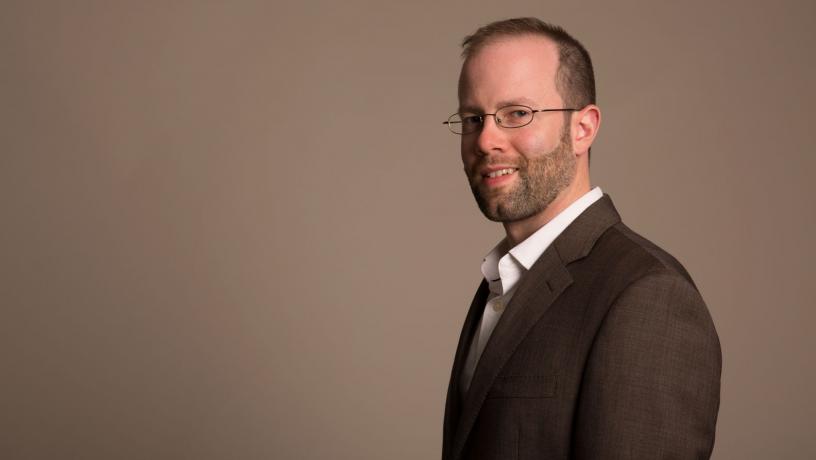
Michael Burke
Michael Burke, assistant professor of mechanical engineering
In a project that will advance faster, cheaper designs of cleaner, more efficient engines, Michael Burke, assistant professor of mechanical engineering, will produce predictive tools for minimizing the formation of combustion-related nitrogen oxides (NOx)—a greenhouse gas responsible for smog, ground-level ozone, acid rain, and other conditions. Mitigating the effects of NOx to meet increasingly strict regulations has been a major constraint in engine design. Burke, who is also a member of Columbia’s Data Science Institute, will partner with industry colleagues at Siemens to translate his predictive tools to better engine designs for the market. (Read more about Burke's research project.)
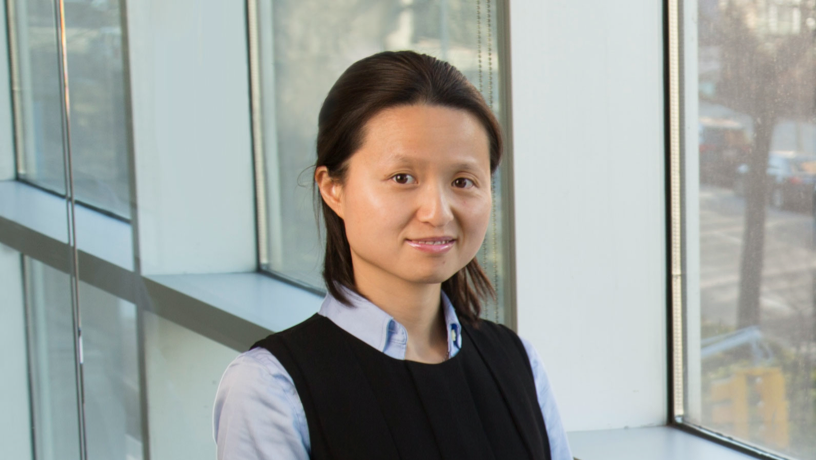
Sharon Di
Sharon Di, assistant professor of civil engineering and engineering mechanics
Sharon Di, assistant professor of civil engineering and engineering mechanics, will apply optimization, game theory, and data analytics to the field of autonomous vehicles (AVs) and shared mobility transportation. Her project will develop new theories and models in transportation engineering to help transportation planners and managers maximize both efficiency and sustainability into the future mobility ecosystem where human-driven vehicles, AVs, AV manufacturers, and rideshare organizations will constantly interact with one another in ways that existing models may fail to predict. Di, who is also a member of the Data Science Institute, will build a scalable, game-theoretic tool to model such complex systems and eventually test the tool at Columbia’s COSMOS testbed for advanced 5G and wireless research in West Harlem. (Read more about Di’s research project.)
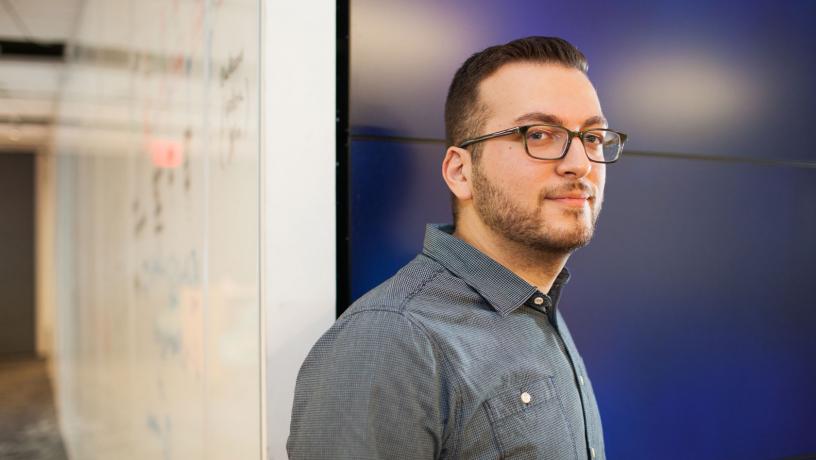
Adam Elmachtoub
Adam Elmachtoub, assistant professor of industrial engineering and operations research
Adam Elmachtoub, assistant professor of industrial engineering and operations research, will design more efficient e-commerce and service systems that embrace and leverage consumer flexibility, that is a consumer's explicit willingness to receive one of an assortment of offered options in exchange for a reward or discount. Elmachtoub, who is also a member of Columbia’s Data Science Institute, plans to develop new analytical methods and tractable approximation approaches for modeling consumer behavior in choice models, which will lead to new pricing analysis and tools that address the inherent mathematical difficulties introduced by flexible options. He will also develop new models for scheduled services, such as grocery delivery, to guide the design of time windows that effectively manage capacity and ensure efficient vehicle routes. (Read more about Elmachtoub's research project.)
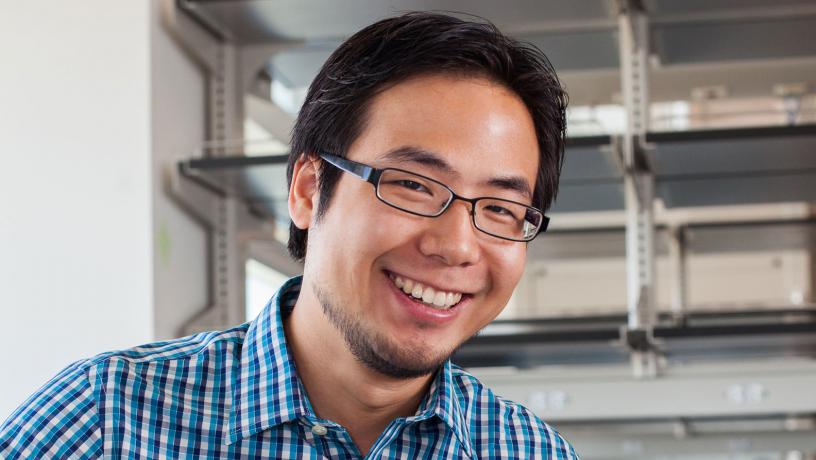
Xiaofan (Fred) Jiang
Xiaofan (Fred) Jiang, assistant professor of electrical engineering
Xiaofan (Fred) Jiang, assistant professor of electrical engineering, plans to use his expertise in sensors, wearables, cyber-physical systems, and data analysis to help building occupants track their personal energy use in real-time and receive recommendations for actionable steps to reduce their “energy footprint.” Jiang will create a digital twin of a commercial building, together with a simulation environment, to model how human actions can drive energy savings and help determine algorithms for computing each occupant’s energy footprint in shared spaces. Jiang will design a reinforcement learning-based recommender system that can uncover which actions have the most potential to realize energy savings and encourage energy-saving behaviors. As part of his project, he will also create a living testbed on the Columbia campus to study the effectiveness of the recommendation and incentive system and evaluate its scalability. (Read more about Jiang's research project.)
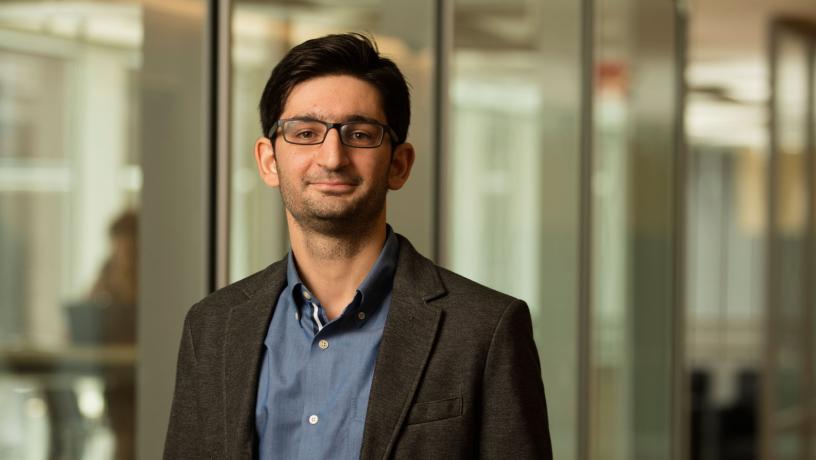
Dion Khodagholy
Dion Khodagholy, assistant professor of electrical engineering
Dion Khodagholy, assistant professor of electrical engineering, will focus on building soft, flexible, and fully biocompatible transistors for bioelectronics devices that can interact directly with signals from the body without damaging tissue. Transistors form the backbone of bioelectronics systems, but building transistors that meet all the criteria required for safe, efficient operation in biological environments such as the human body has been a daunting challenge. Khodagholy believes ion-gated transistors (IGTs) will effectively interact with neural signals because they can directly transduce the brain’s ionic flux, and are sufficient to create the integrated circuits required for fully implantable, soft, closed-loop devices that do not require rigid encapsulation. (Read more about Khodagholy's research project.)
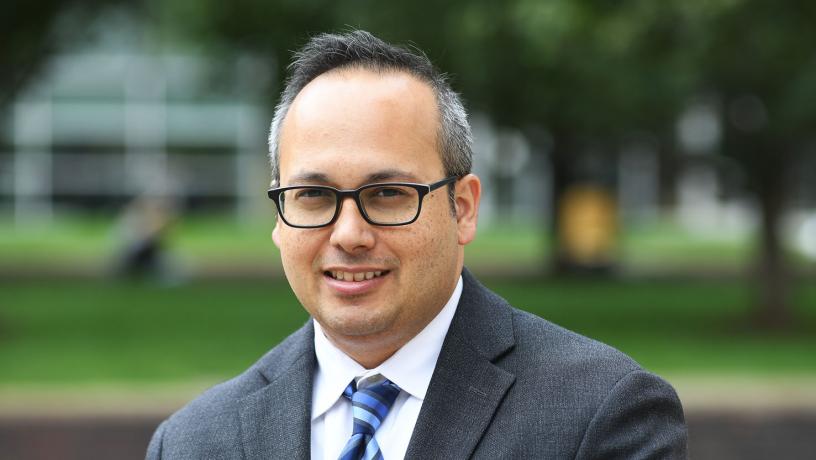
Nandan Nerurkar
Nandan Nerurkar, assistant professor of biomedical engineering
For his research, Nandan Nerurkar, assistant professor of biomedical engineering, will investigate the molecular biology of intestinal looping in chick embryos, a key feature in morphogenesis with implications for human health. An integrated understanding of the mechanics and genetics behind looping could lead to better screening and treatment methods for congenital disorders. By examining the phenomena, Nerurkar hopes to uncover the developmental signals that regulate tissue formation and establish the design principles of embryonic development needed to advance tissue engineering and regenerative medicine capable of treating these disorders. Longer term, Nerurkar sees unlimited potential for applying this research to the development of functional tissues. (Read more about Nerurkar's research project.)
